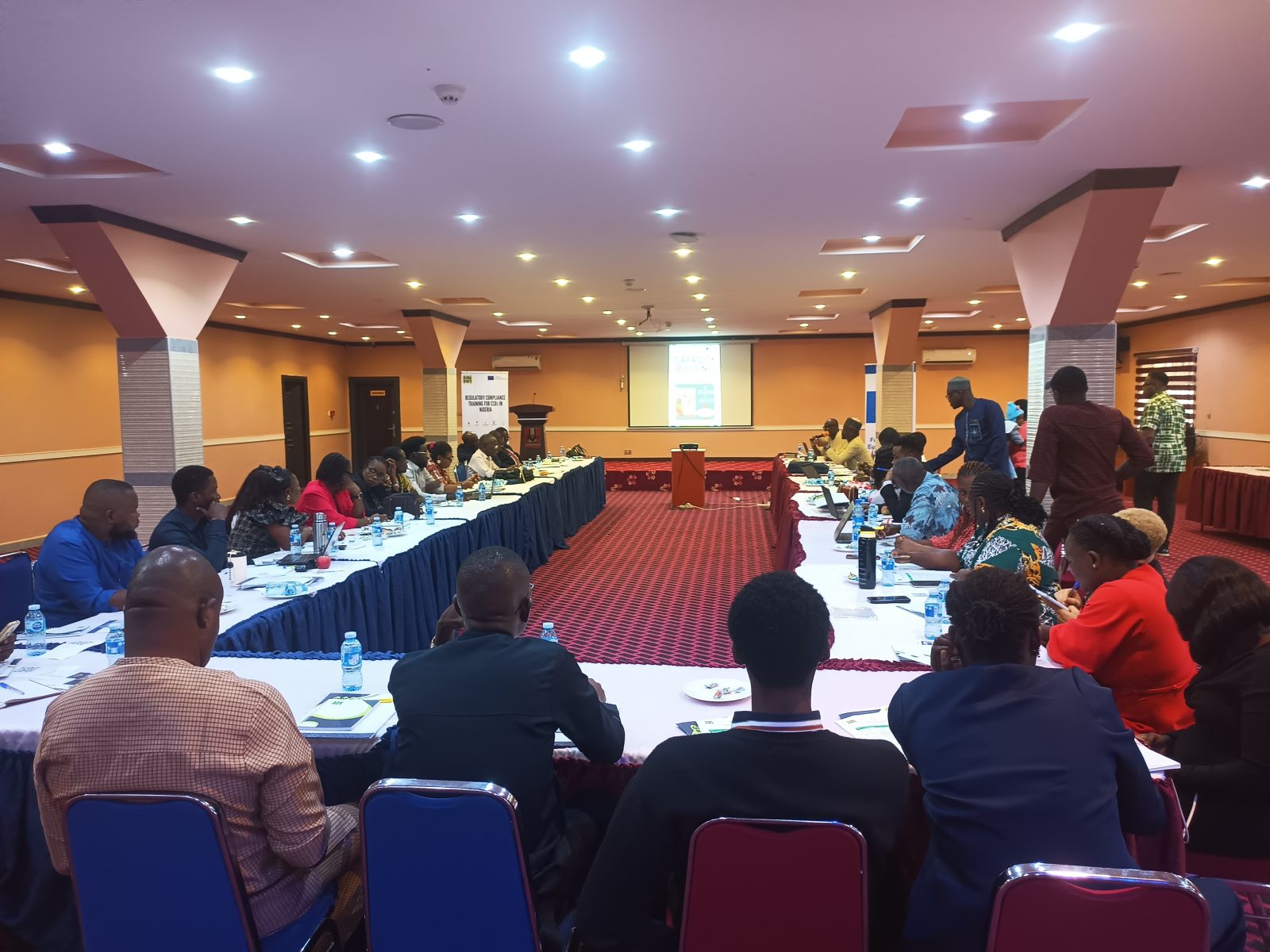Ahead of New Tax Policy, Global Rights Urges CSOs to Tighten Records

By Ndifreke Enefiok, Uyo
As Nigeria prepares to implement a new tax policy in January 2026, Global Rights has urged Civil Society Organisations (CSOs) to tighten their financial records by filing their annual returns, completing their registration processes, and ensuring full compliance with regulatory bodies to avoid penalties.
Global Rights, an international advocacy group, made the call on Monday, October 20, during a two-day training on Regulatory Compliance for members of the Community of Practice on Civic Space Strengthening in Akwa Ibom.
The training, held in Uyo, was implemented with support from the European Union and the Economic Community of West African States (ECOWAS).
Speaking at the training, Global Rights Program Manager, Edosa Oviawe, observed that many CSOs have been penalised for non-compliance, not out of defiance, but due to ignorance of proper procedures for filing returns and narrating financial transactions of projects executed.
“Many NGOs have been slammed with penalties that accrued into millions by CAC for failing to file annual returns. Most of them do not know how to go about regulatory compliance, and this ignorance has cost them trust. Despite ensuring their financial records are clean, some NGOs still make the mistake of wrong narration in transactions carried out. This issue has caused problems for some organisations with regulators like the Federal Inland Revenue Service and CAC,” Oviawe stated.
Oviawe explained that the training was designed to equip CDOs with practical knowledge needed to navigate the complex tax and corporate governance environment, urging CSOs to build their capacity in financial documentation and governance compliance to avoid penalties and loss of credibility ahead of the new tax regime set to take effect in January 2026.
Explaining further, the Global Rights Program Manager, noted that with the new tax reforms coming into effect from next year, ignorance will no longer be an excuse for organisations that fail to comply with regulatory compliance.
“Many organisations have suffered penalties and reputational damage due to poor documentation and misunderstanding of basic financial procedures. What ordinarily should not be taxed becomes taxable because of wrong narration. We want to ensure that by the time the new regime begins, our civil society actors are fully prepared to comply,’’ he added.
Highlighting the importance of compliance, Professor Adedeji Adekunle (SAN), who spoke on Companies and Allied Matters Act (CAMA), noted that a significant number of CSOs have faced sanctions from the CAC for non-filing of annual returns and other violations.
Adekunle urged organisations to appoint compliance officers who would ensure that filing, tax returns, and remittances such as Pay As You Earn (PAYE), and other taxes are filled correctly and on time.
“Filing annual returns is very important and this is to be done no later than 42 days after the annual general meeting for the year. Also, organisations must understand that non-profit does not mean non-compliant,” he noted.
Explaining further on taxable items such as expenses, consultancy fee, ticket, honorarium, and others, Adekunle noted that these obligations must be taken seriously. According to him, “You may not be required to pay income tax, but you have a duty to file tax returns and collect withholding tax on behalf of the government.”
Tijah Bolton-Akpan,the National Steering Committee Member, CoP on Civic Space Strengthening, while sharing insights on the importance of the training, noted that it was a timely intervention aimed at ensuring CSOs in the state not only advocate for accountability but also incorporate it into their operations.
Akpan stressed that as the country prepares to roll out the new tax policies, CSOs must demonstrate that they can lead by example, maintaining compliance is part of integrity, and integrity is the soul of civil society.
Speaking on obligations for Non-profits, Alfred Lortyaver elaborated on the registration requirements of CAC, the need for tax compliance, and the range of taxes applicable to Non-Profit Organisations (NPOs), including Companies Income Tax, Capital Income Tax, Personal Income Tax, PAYE, Withholding Tax, and Value Added Tax (VAT).
While emphasising these obligations are not designed to burden CSOs but to ensure accountability, he urged them to seek professional guidance when in doubt to avoid unnecessary sanctions that could cripple their activities.







